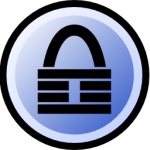 Are you trying to create a secure password that nobody will ever guess? Or you probably did, but the password was so good that you forgot it? Having a password manager for Linux is the best way to protect your personal data from being breached and keep your mind password-free.
Are you trying to create a secure password that nobody will ever guess? Or you probably did, but the password was so good that you forgot it? Having a password manager for Linux is the best way to protect your personal data from being breached and keep your mind password-free.
Most people are reported to have up to 27 accounts across several sites. Trying to keep track of them all through your day-to-day operations can be messy, so much so that users re-use the same password for all of them. For example, the word “PASSWORD” is rated as the 8th most used password in the world. Now, that’s scary from a security standpoint.
The reality is that our technological devices are getting even more sophisticated and that expansion leaves us vulnerable to constant security threats. In 2018 alone, an estimated 2.5 billion people worldwide had their PC or mobile devices hacked.
Even though your mobile device comes with built-in VPN’s (virtual private networks) and high-quality end-to-end encryptions, those just aren’t enough to cover all of your bases.
Companies like Facebook and WhatsApp profess to have the same quality encryptions yet they are still vulnerable to attackers. Many people brush this off with an “I have nothing to hide” attitude, but when their identity is being used to commit fraud, spy on loved ones and hit their bank accounts, that’s when they know that they should have taken their account security seriously.
Password managers for Linux secure your existing passwords by storing them together in an encrypted vault or server where they can be accessed with one master password consisting of long words or phrases. This software will also generate stronger and harder to crack-in passwords. They also periodically change those passwords to lessen the likelihood of being compromised.
Table of Content
Pros and Cons of Having Linux Password Manager
Pros:
Cons:
- Locked In – Be very careful in choosing the best password manager for your PC and mobile devices because once you have a managing system in charge of all your data, the data will most likely be in that system’s vault forever. Choose wisely.
- Possibility of not being able to access the password manager – In case you forget your master password, it will be hard for you to gain access to your account and the data stored in it. That’s why you should contact the support team immediately if ever you lose your master password.
The Best Password Managers for Linux
1. Enpass

Free Version: Available
Supports: Windows, Mac OS, Linux, iOS and Android
Distinguishing itself from the competition, Enpass is a cross-platform system that is used as an offline password manager which means that Enpass will allow you to store all of your data locally on your PC or mobile devices. You will also have the control to protect your data in your own environment.
Enpass provides you with a key file, which will add an additional layer of security to your authentication.
Although it’s an offline account, you are allowed to sync your data with cloud accounts like iCloud, Dropbox, OneDrive, Google Drive or WebDAV.
Pros:
Cons:
- Does not offer the free version for mobile
- It’s not compatible with Microsoft Edge
- It lacks features like digital inheritance and web-form
- There is only one password vault per user. You’ll have to upgrade to the premium version to get more vaults
- If you forget your master password, your account cannot be restored
2. Keeper

Free Version: Available
Supports: Windows, Mac OS, Linux, iOS and Android
Keeper is a two-factor authentication manager that stores your most sensitive financial and personal information by using 256-bit AES encryption software and zero-knowledge architecture. With over 9 million users, Keeper works with more than 3,000 companies to secure.
To make sure that no malicious website gets access to your content, Keeper allows you to extend your browser with Chrome, Edge, Firefox, Opera, Safari, and Internet Explorer.
Breach Watch by Keeper will search through the dark web for any accounts or passwords that might have been stolen and then alert you so you can take the necessary precautions to secure the account. This feature already comes integrated with Keeper.
Pros:
Cons:
- Can only change one password at a time
- Does not scan your Inbox
- No phone support
- No drag and drop feature
3. LastPass

Free Version: Available
Supports: Windows, Mac OS, Linux, iOS and Android
Working on almost any platform or device, LastPass remains one of the most recognized Password Managers. LastPass has almost all of the features of any other management software out there wrapped in one. It is one of the most trusted, with an estimated 13 million users across the world.
Their platform is especially beneficial to those who wish to use it for business purposes. LastPass features a centralized administrative control deployment, to manage policies, reporting, assigning group-level permissions, and employee access to all web services and apps that are available in a single shared Vault.
Pros:
Cons:
- Re-entering master password on every site
- No phone or live chat support (only forum)
- Occasional glitches may occur
4. KeePass

Free Version: Unlimited
Supports: Windows, Mac OS, Linux, Blackberry, Chromebook
KeePass is a free open-source portable manager which you can carry on a USB stick wherever you go. It actually doesn’t store anything directly on your operating system nor does it create or initialize any files or registry keys. It also allows you to use key files that provide, in most cases, a more robust and secure database than the master password itself.
You can export your password list through HTML, XML, TXT and CSV formats and can import TXT CodeWalletPro outputs, which are closed-source vault passwords.
Pros:
Cons:
- User difficulties
- Does not alert during potential breaches
- No auto-fill function
- Requires special plug-ins
5. Dashlane

Free Version: Available for Desktop
Supports: Windows, Mac OS, Linux, iOS
Dashlane’s platform offers great service, providing an unlimited amount of passwords for data on multiple devices, unlimited sharing of notes and secure passwords, all of which you can keep track of. Regardless of the platform, you can also sync across multiple devices with secure access anywhere.
VPN protection can shield your data and online activity from being tracked by hackers. Dashlane will allow you to switch your server location so you can stay in complete anonymity.
Pros:
Cons:
- Limited support for Explorer
- No phone support (seems to be typical)
- No multi-factor authentication
Surely by now, password management must be looking very enticing. Considering all of the available options, products and resources that are literally just a click away, we can all breathe a big sigh of relief that we are not alone in the battle to secure our data.
FAQs
Which operating systems do I need in order to download a password manager?
The top password management companies are compatible with Windows, Linux, Mac OS, Android, iOS and tablets.
Why can’t I protect my own passwords?
Everyone is free to manage their data as they please. However, if you have passwords spread out along many websites, you could start with a free trial to test the waters.
Are password managers completely secure?
Password managers cannot guarantee 100% security. Even though breaches have occurred in the past, it is still the safest way to guard your data.
How much am I looking at spending?
You can sign up absolutely free, with the option to upgrade if you need the extra features.
What if I forget my password?
Most password managers for Linux will have a recovery option should this happen, while others have a zero-tolerance policy. If you forget your master password, you could lose your data. Be mindful of this when choosing the right software.